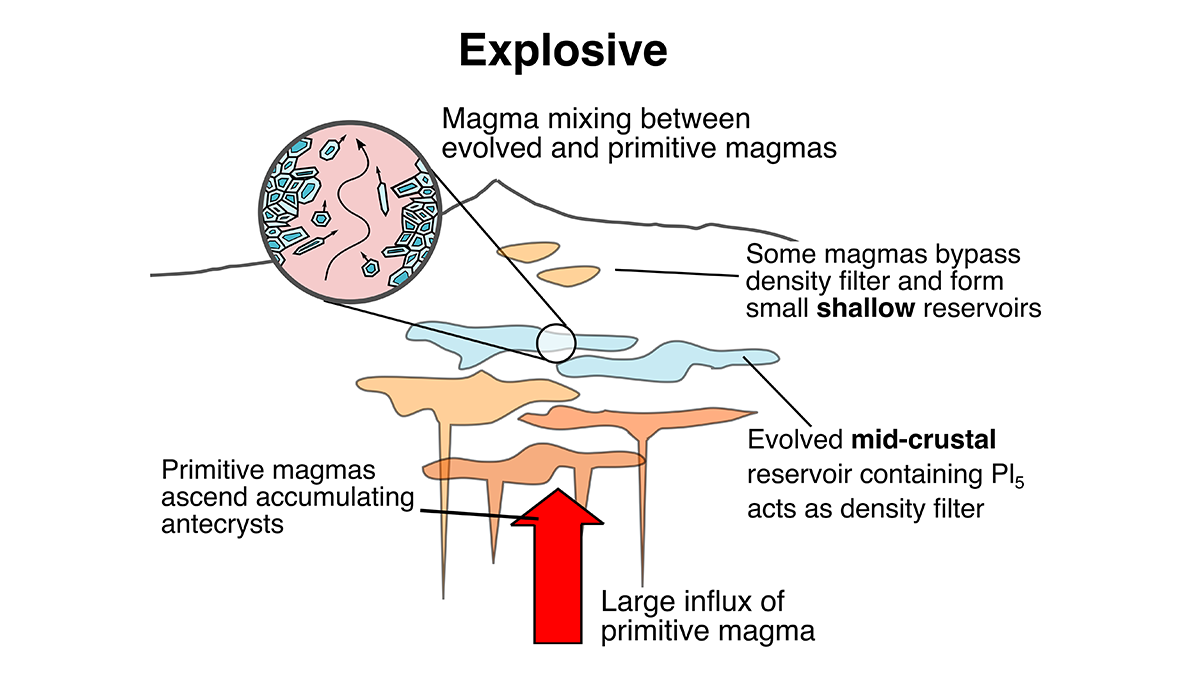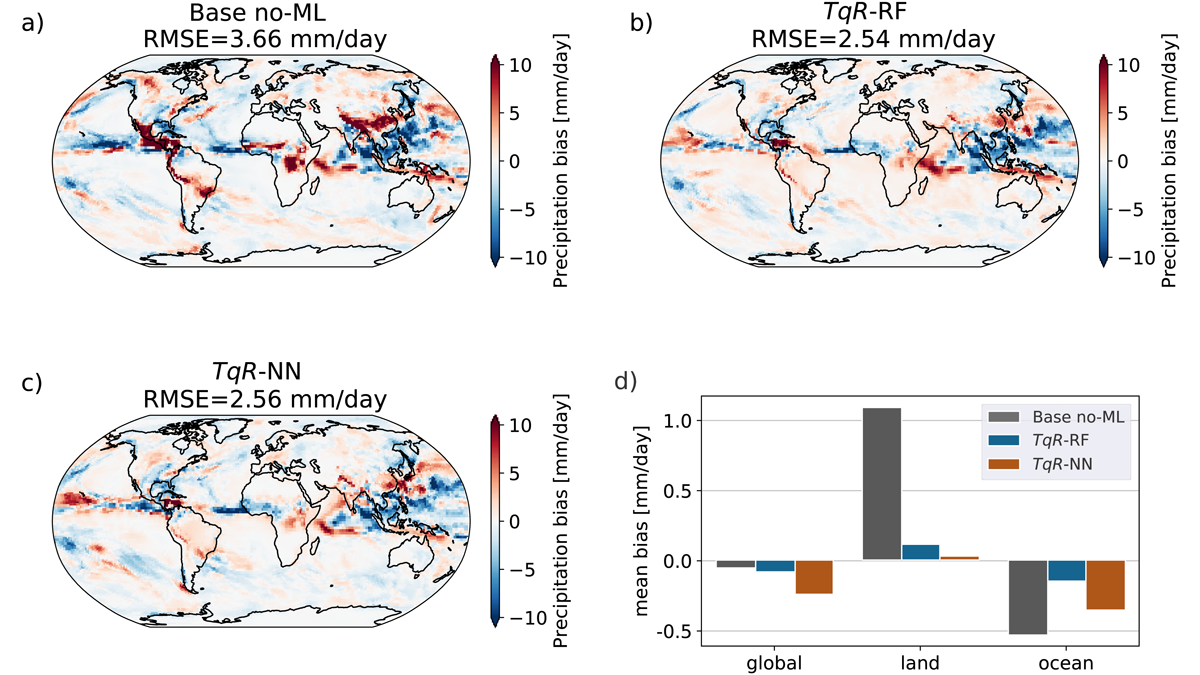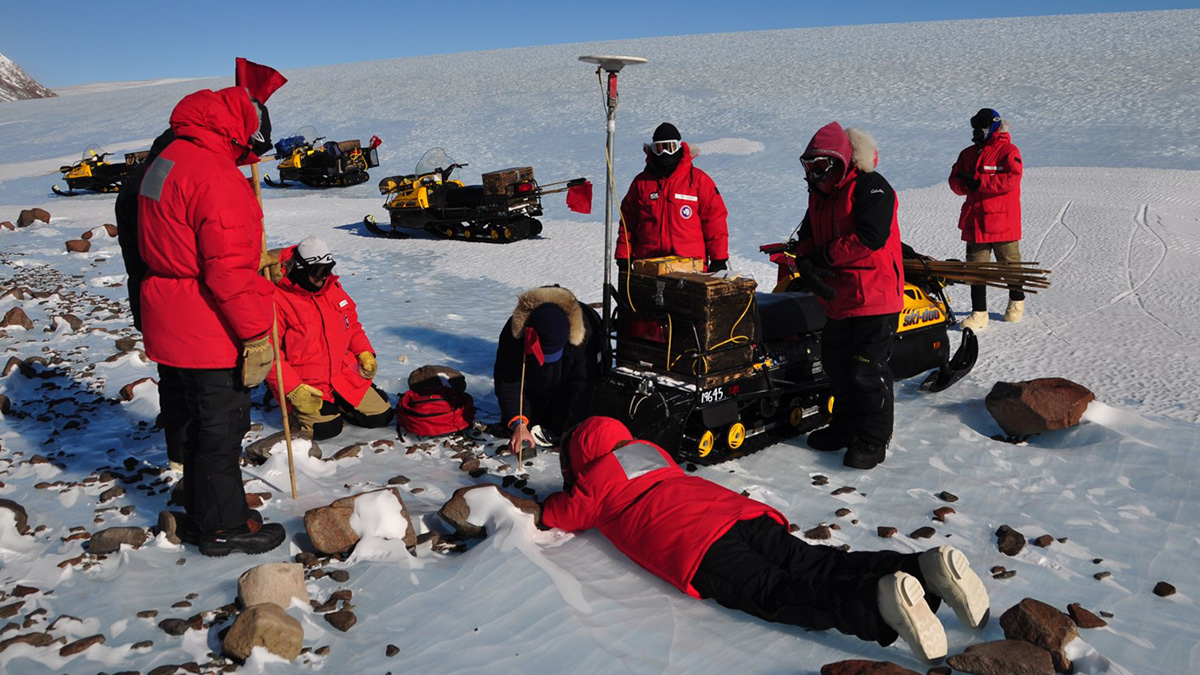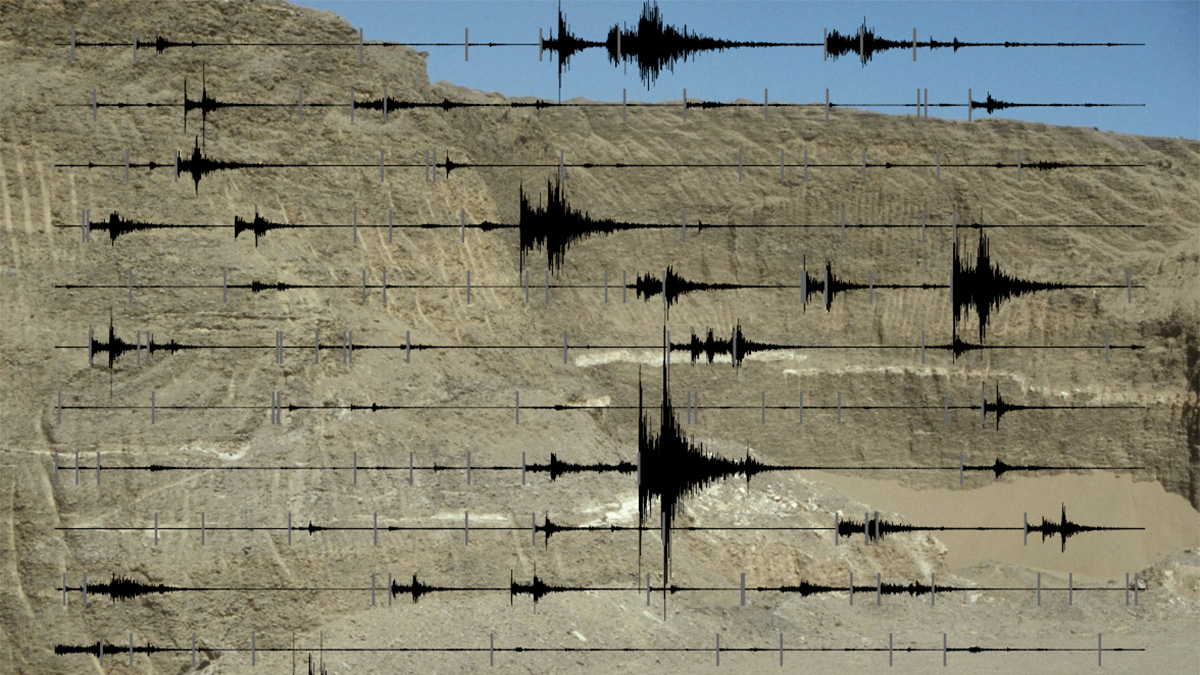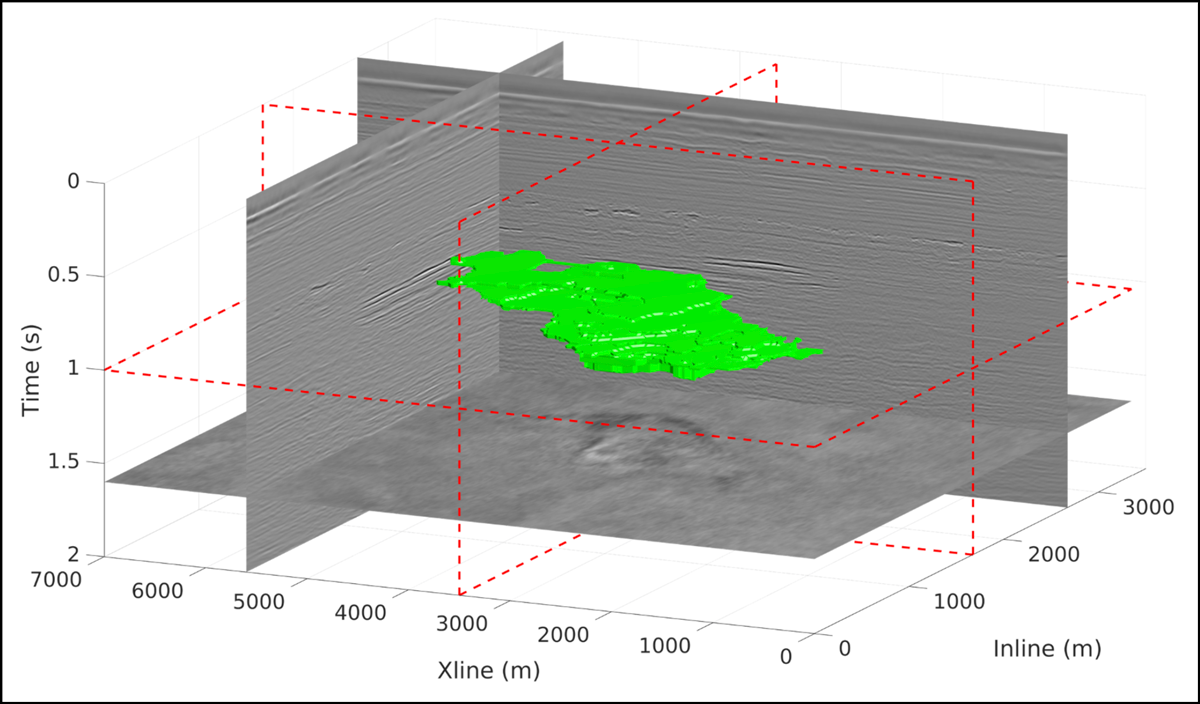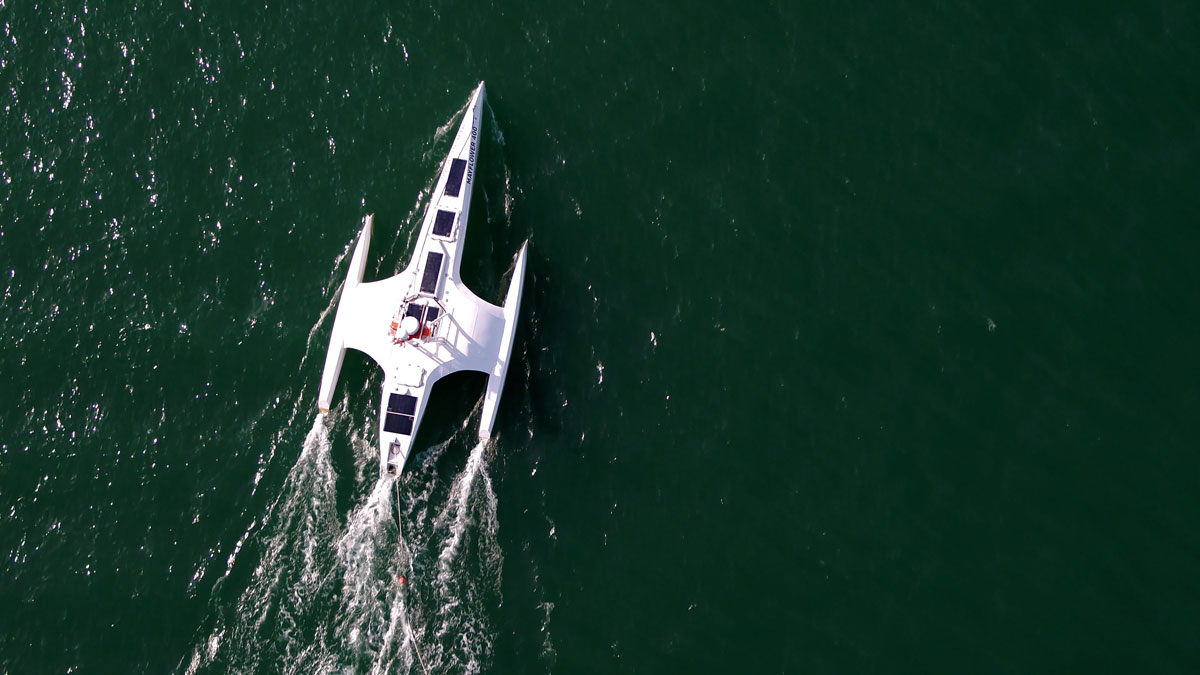How big might future volcanic eruptions be? Crystals carry information to answer this and machine learning methods can visualize and interpret this multidimensional data.
machine learning & AI
Understanding and Utilizing the Fractured Earth
The prediction of flow and transport in fractured rock is one of the great challenges in the Earth and energy sciences with far-reaching economic and environmental impacts.
Testing a Machine Learning Approach to Geophysical Inversion
Variational autoencoders can be leveraged to provide an effective method of inversion that is both accurate and computationally efficient.
Corrective Machine Learning for Improving Climate Models
A machine-learned correction enables an efficient coarse-grid global atmosphere model to better track the weather and time-mean precipitation of an expensive fine-grid ‘digital twin’ reference model.
Distributed Sensing and Machine Learning Hone Seismic Listening
Fiber-optic cables can provide a wealth of detailed data on subsurface vibrations from a wide range of sources. Machine learning offers a means to make sense of it all.
Machine Learning Pinpoints Meteorite-Rich Areas in Antarctica
A new algorithm suggests that only a small fraction of meteorites present on the White Continent’s surface have been recovered to date.
Comparing Machine Learning Models for Earthquake Detection
A new study evaluated the performance of emerging deep learning models for earthquake detection, phase identification, and phase picking.
Neural Networks Can Identify Carbon Dioxide in Seismic Observations
By establishing a machine-driven approach to interpreting seismic observations of carbon dioxide injection, researchers hope to improve tracking of carbon capture and sequestration projects.
A New Mayflower, Named for the Past, Autonomously Navigates the Future
To commemorate the 400th anniversary of the Pilgrims’ crossing, a ship guided by an AI captain will embark on the same journey, doing science along the way.
Machine Learning Algorithms Help Scientists Explore Mars
Researchers applied machine learning algorithms to several distinct chemical compositions of Mars and suggest that these algorithms could be a powerful tool to map the planet’s surface on a large scale.

